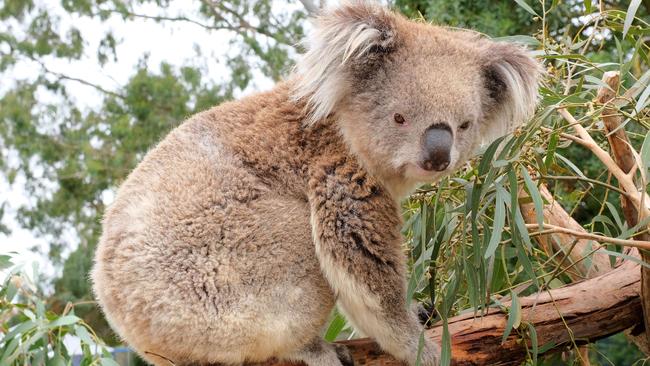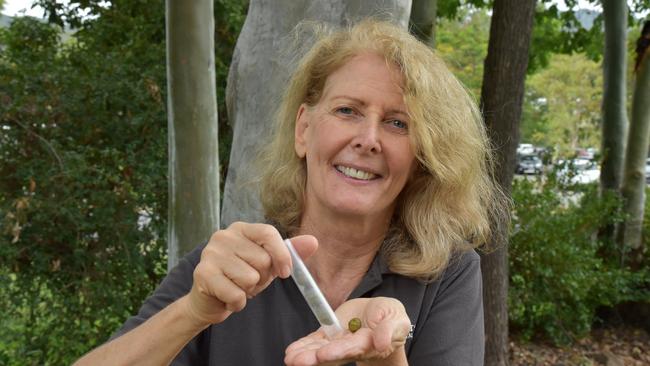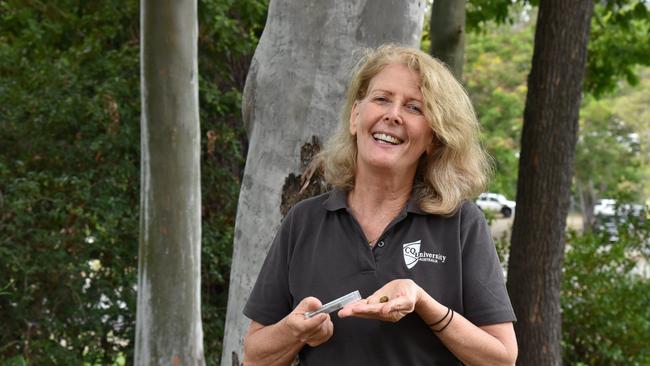Scientists study koala poo to unlock chemical key to survival
Scientists have spent a year studying koala poo, which could hold a key to preserving the iconic species.

Gladstone
Don't miss out on the headlines from Gladstone. Followed categories will be added to My News.
The key to the survival of Australia’s globally iconic koala species may be found in its faeces, a Central Queensland scientist has found.
The critical revelation could determine how long future generations can see the magnificent marsupials in the wild, after a World Wildlife Fund commissioned report announced more than 60,000 koalas were impacted by the devastating 2019-2020 bushfires.
Central Queensland University koala researcher Dr Flavia Santamaria has spent the past year prying through piles of poo to determine the mammals stress levels.
Just like how humans became more vulnerable to diseases and illnesses when stressed, Dr Santamaria said so did koalas.

“We are currently looking at chemicals related to cortisol, also called cortisol metabolites, in the poo which can tell us about the stress levels of the animals,” she said.
“We know that increased stress in koalas can induce an increase in cortisol which may be reflected in increased faecal cortisol metabolite values.”
Dr Santamaria’s study of koala poo, collected from a wildlife facility in southeast Queensland over a 12-month period, will act as a baseline for future studies on stress in wild koalas.
“To establish a link between stress and the activity of the adrenocortical gland which produces cortisol, we first had to determine a baseline for male and female koalas during mating and non-mating season,” she explained.
“This is the first study of its kind to provide a baseline for an entire year.”
She said while acute stress could be determined through a blood sample, chronic, persistent stress levels may be detected in the koala faeces and collecting pellet samples was a non-invasive, hands-off approach that did not further stress the animal.
The CQUni study was conducted in partnership with the University of Queensland, Monash Proteomics and Metabolomics Facility, and a researcher from the University of Veterinary Medicine in Vienna, Austria.

Dr Santamaria and the research team hope to determine what is stressing koala populations in the wild and how these stresses may be affecting the health and wellbeing of the species.
“Habitat clearing is one of the problems we believe is affecting the stress levels of koalas,” she said.
“If you clear their habitat, koalas are forced to roam around more than they would otherwise, forcing them to cross roads and enter residential yards where they become at risk of being injured or killed.
“We also know that stressed animals are more likely to develop diseases and become ill, similar to how humans get sick when they are stressed.
“A follow-up study is progressing to determine if there are clear links between stress in koalas and the increase in diseases in the species.
“This study has the potential to inform koala habitat management to ensure the survival of koala populations in the future.”
Other stories
Less than 1% half-vaccinated as COVID scare grips CQ
TRIBUTE: CQ principal remembered as ‘pioneer’
Fireys called to fire outside Biloela home
Originally published as Scientists study koala poo to unlock chemical key to survival


